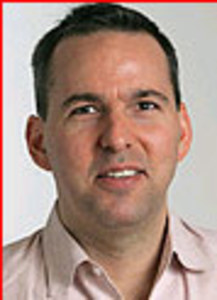Give Michael Ignatieff this much credit: He is a hot commodity at North America's best newspaper. It is not every foreign politician who gets four glossy pages of The New York Times' esteemed weekly magazine to promote his latest political reinvention.
Ignatieff 's article -- published Sunday -- is entitled "Getting Iraq Wrong: What the War Has Taught Me About Political Judgment." The title suggests an impassioned mea culpa from a humbled scholar. But the larger motive here seems to be damage control. During the run-up to last year's Liberal convention, Ignatieff was dragged down by his 2003-era support for the Iraq war. "Getting Iraq Wrong" is aimed at taking that card away from his opponents next time around.
In theory, that's smart politics. But in execution, Ignatieff likely did himself more harm than good with this New York Times splash. Not only is his argument about Iraq a confusing stew of contradictions, but he interrupts his argument halfway through to -- a propos of nothing -- moan self-pityingly about his trials as a politician.
"Among friends and families, we ... cut one another some slack. We fill in one another's sentences," Ignatieff writes. "No such mercies occur in politics. In public life, language is a weapon of war and is deployed in conditions of radical distrust. All that matters is what you said, not what you meant. The political realm is a world of lunatic literalism. The slightest crack in your armour --between what you meant and what you said -- can be pried open and the knife driven home."
The Liberals I've spoken with in the last few days -- many of whom were already upset that Ignatieff 's been keeping his youth brigades in stand-by mode this year --are rolling their eyeballs at this woe-is-me routine. Were we supposed to cut Ignatieff "slack" when he declared Quebec a "nation"? When he accused Israel of "war crimes" in its fight against Hezbollah? How is it "lunatic literalism" to take these words at their plain meaning? Ignatieff lost the Liberal leadership last year because he made deliberate verbal gambits that backfired-- not because anyone distorted what he had to say.
But even once you get beyond this self-indulgent digression, "Getting Iraq Wrong" is a very odd piece of writing.
The problem lies with Ignatieff 's flawed thesis, which is that intellectuals (including the pre-Liberal party version of himself ) can't be trusted on important matters such as Iraq because they are too hung up on "big ideas" -- like, say, bringing freedom to Middle Eastern countries; in contrast to politicians, who stolidly focus on "reality." Or as the author puts it: "In politics, everything is what it is and not another thing. Specifics matter more than generalities. Theory gets in the way."
That sounds a lot like jaded Chretienite pragmatism, which I suppose would be defensible if you are willing to overlook the fact that Ignatieff burst into Liberal politics being ballyhooed as Pierre Elliott Trudeau II. But then, a few paragraphs down, Ignatieff does a 180, and informs us that, in fact, "fixed principle matters. There are some goods that cannot be traded."
What is the difference between these "fixed principles" and the "big ideas" all those starry-eyed intellectuals are prioritizing? (Which category, for instance, does human rights fall into?) Ignatieff doesn't tell us. In any case, the whole question becomes moot two paragraphs later, when Ignatieff reverts again to the Chretienian view that political compromise "is more important than holding onto pure principle" (as opposed to "fixed principle," which apparently is something different).
In an especially contradictory flourish at the end of the essay, Ignatieff -- the newly christened empiricist who believes "specifics matter more than generalities" -- chastises himself for judging the case for war based on his own eyewitness trip to the country in 1992. The problem, Ignatieff confesses, is that he was shocked out of his senses by the scale of Saddam Hussein's genocide against the Kurds. "I let emotion carry me past the hard questions," he writes, sounding something like a Chinese political prisoner scribbling out his crimes in a re-education camp. "I should have known that emotions in politics, as in life, tend to be self-justifying."
In his Harvard days, Ignatieff had a reputation as a deep and rigorous thinker. "Getting Iraq Wrong" shows that even a great author can spiral himself into the ground when he tries to argue an unsupportable thesis -- in this case, the idea that politicians enjoy an inborn advantage when it comes to making important moral decisions. Rightly or wrongly, George W. Bush, Tony Blair, Christopher Hitchens, Charles Krauthammer, Michael Ignatieff and a hundred other leading war supporters from the worlds of academia and politics were all speaking the same moral language on the eve of the Iraq invasion.
The irony here is that Ignatieff 's bottom-line position on the war itself is entirely defensible: Given all the bad news that's come out of the country in the last four years, a hawk's apology shouldn't be a hard thing to spit out of your beak. But Ignatieff got too ambitious. Instead of penning a straightforward 800-word mea culpa column for the Times op-ed page, he went for an epic manifesto of personal transformation, one serving to separate him in nothing less than existential terms from the war-supporting intellectual he'd once been.
Unfortunately, life doesn't work that way. Like the rest of us, Michael Ignatieff can change his mind. But he can't convince us he's become a brand new person merely by changing occupations.

























Laissez un commentaire Votre adresse courriel ne sera pas publiée.
Veuillez vous connecter afin de laisser un commentaire.
Aucun commentaire trouvé